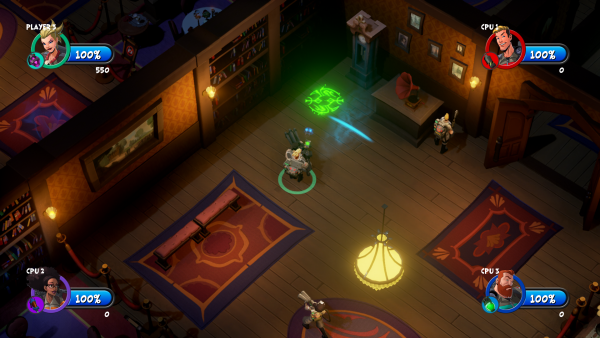Video games have always enjoyed a strong relationship with other forms of media. Whether through the amazing translations seen with Rocksteady’s Batman Arkham games or the less-than-impressive old-school Atari 2600 translation of E.T. The Extra-Terrestrial, the franchise potential has always been a source of interest. However, somewhat oddly, we have recently seen an increasing trend of older television shows receiving modern adaptions into the world of gaming.
Why does this happen, and what examples help illustrate this development?
The Key of Appeal
While it might have been true that there used to be some level of stigma towards video game enthusiasm, the overwhelming popularity that games enjoy today has largely thrown this concern by the wayside. This means greater involvement with players of all ages, not just the young, which in turn means a stronger and healthier market than at any point in the past.
In a word, this comes down to nostalgia. Hollywood has displayed time and again that reboots are a good bet based on recognition alone, although these efforts are not without their caveats. The issue here is that while modern film reboots like Sony’s Ghostbusters might attempt to pander to that which we have loved, they often miss the feel and charm of the originals.
Video games are different, though. These not only allow more direct translations of older media but they also often do so with older cast members lending their likeness and even voices to the role. Combined with developers who are passionate about the original property, this allows much closer adherence to the feel of the original. Red Fly Studio’s Ghostbusters game, for example, was loved and acclaimed, unlike the modern film remake.
What’s on Offer
Again lending a greater level of success to modern adaption is the fact that modern gaming crosses so many different devices. This means that even if a major console release is beyond reach, smaller dedicated releases to computers, tablets, or mobile devices can still offer cohesive experiences when given the right attention.
This isn’t just relegated to live-action shows, either, as even anime which aired in the 80s like Dragon Ball has seen huge success with modern developments like the critically and commercially acclaimed Dragon Ball FighterZ from Bandai Namco. The same can be said of western cartoons, as classic Hanna-Barbera creations like Top Cat have seen many successful translations, even as far as dedicated slot games on services like Buzz Bingo.
A big part of this, we suspect, comes down to the nature of creating video game media over other forms when dealing with older properties. There is an epidemic in gaming with low-quality creations called shovelware. These are low effort creations, often created as little more than cash-grabs to capitalize on current trends.
Older forms of media, however, are built in a very different way. To make a newer game based off of an older property means to actually care about, to create something out of a sense of nostalgia and love, to give fans another trip back into a world they loved even decades ago. Of course, there will always be outliers in these scenarios, but we can’t in it giving us hope for the future of television to video game translations.


